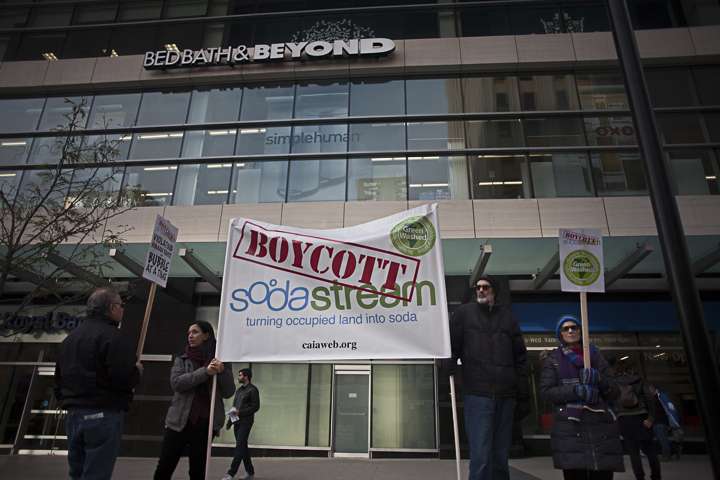With the Winter Olympics beginning and the Super Bowl just behind us, the spirit of sports is in the air. Along with increased attention to the players and teams themselves, the events have brought further awareness to the commercialism behind the athletics. Specifically, several commercials and social media messages have generated controversy and adverse reactions, including boycotts.
The Israel-based company SodaStream, which produces home carbonation systems, released a Super Bowl ad featuring the actress Scarlett Johansson, also an ambassador for the multinational organization Oxfam. The latter group, which disapproved of the location of SodaStream’s factory near settlements on the West Bank, parted ways with Johansson after she maintained her affiliation with the company. This incident has spurred varied reactions across the globe, with some expressing outrage and a desire to boycott SodaStream, and others praising Johansson’s resilient stance.
In another incident, Coca-Cola released a commercial featuring the song “America the Beautiful” in several languages, including English, Spanish, Arabic, and Hindi. This incited rage for some spectators, who felt that the patriotic song should be performed exclusively in English, and some on Twitter suggested boycotting the company. This was met with a counter-reaction which criticized the angry tweets, calling them racist and contrary to the multicultural nature of modern America. Yet another major controversy surrounded the Sochi Winter Olympics. Critics of the treatment of the LGBT community and various other human rights violations in Russia have advocated a boycott of the games.
These events raise the question of the true value and virtue of boycotting in the modern world. Historically, boycotts have been hugely influential in communicating important messages about social justice campaigns, such as the monumental Montgomery Bus Boycott during the civil rights movement in the 1960s. One critical criticism of modern boycotts, especially in the U.S. and Canada, is that they often draw attention to the industry of commercialization and thus are somewhat superficial in nature. However, they also have substantial advantages as effective advertisements and have a peculiar ability to frame larger contexts and messages using specific, narrow events. Also, the profundity of these movements cannot be exaggerated in the developing world; the 2010 Muslim Brotherhood boycott of parliamentary elections was a hugely influential event in the timeline leading up to the Arab Spring a few years later, which drastically transformed the country’s political and social landscape. Even this year’s most prominent boycotts have framed important issues in the modern world, including racism and LGBT rights.
Boycotts have a renewed importance in the modern world. The influence of technology, which allows for the faster spread of information, has increased the efficiency and effectiveness of modern boycotts and thus their global impact. Moreover, if boycotts are to be encouraged out of pure virtue, one must refrain from picking and choosing which issues merit their attention and which don’t. Due to their ability to spread messages with potential to perpetuate massive global impact, these tactics continue to remain viable in a modern context.








